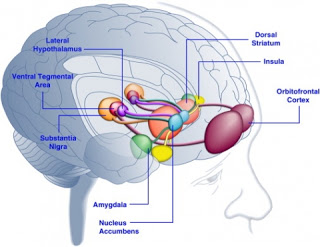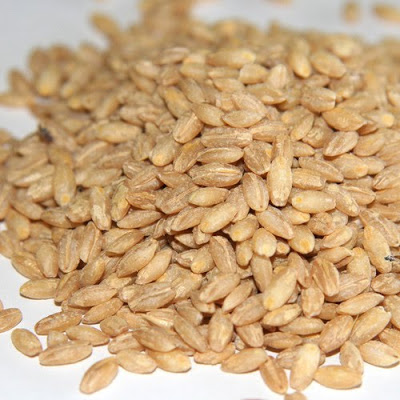Today, let’s talk about the third player in this battle: hedonic mechanisms.
Hedonic barriers to maintaining weight loss refer to emotional factors that play into the weight struggle. There are several parts of the brain, together called the limbic system, that have an important influence on if, what, when, where, and how we eat. These include the ventral tegmental area and nucleus accumbens as our main reward centers; the amgydala as our emotional centre; the hippocampus, which is involved in memory; the dorsolateral prefrontal cortex which is involved in impulse control…and many others. These centres in our brain talk to each other without us even knowing it, to drive us to eat.
So picture this: It’s New Year’s Eve, and you are absolutely stuffed after a delicious meal. You couldn’t possibly eat another bite. Then a chocolate fondue for dessert, warm melty deliciousness, is placed on the table… the delicious aroma, the reassuring coziness and happy memories with which you associate this dessert and the holiday season… and suddenly you have room for just a few more bites. That is your hedonic system kicking in and driving food intake, even though your hormone systems have told you that you are full.
So, after successful weight loss, in addition to the lower energy burn and changes in hunger/fullness hormones that drive us to eat, we also have a powerful subconscious hedonic system driving us to regain weight.
The hedonic system is an important consideration in anyone with a weight struggle, whether or not they have previously lost weight. Most of us have a psychological relationship with food of some kind – some of us eat when we feel sad, others when stressed, others when happy. Some people find themselves eating to manage physical pain from another medical condition – food releases endorphins in our brains, which is why eating can ease pain for these individuals.
The first step to managing hedonic mechanisms behind food intake is to recognize them – and they will be different for each individual. The next step is to figure out how to best manage these hedonic inputs without food intake as the response. For example, avoiding the hallway with Tim Hortons on the way through your work complex to your office can avoid those triggering smells from reaching your nose. If pain is the issue, then your health care professionals need to help you find better ways to manage your pain. Stress – well, we probably could all do with less of that in our lives! And the list goes on.
As hedonic mechanisms are so very powerful such as to overwhelm physiology in anyone who struggles with weight, it can’t be stressed enough how important it is to understand any hedonic contributors in each individual’s weight struggle, then work together as a team of patient and health care providers to manage them in the most effective way possible.
Wishing everyone a happy, healthy, and fulfilling 2016!!
Follow me on twitter! @drsuepedersen













